187 start with I start with I
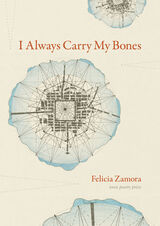
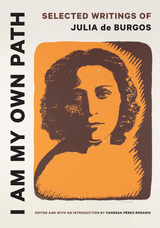
A definitive, bilingual selection of poetry, essays, and letters by one of Puerto Rico’s most beloved poets.
Julia de Burgos (1914–1953) is best known for her poetry, but she is also an important cultural figure famous for her commitment to social justice, feminist ideas, and the independence of Puerto Rico. Admirers cultivated her legacy to bring to light the real Julia de Burgos, the woman behind the public figure, which this remarkable collection further illuminates by supplying a complex portrait using her own powerful and imaginative words.
Beginning with a critical introduction to Burgos's life and work, Vanessa Pérez-Rosario then presents a selection of poems, essays, and letters, that offer a glimpse into this formidable talent and intellect. Burgos left Puerto Rico, spending the 1940s in both New York City and Havana, where she cultivated a new kind of identity refracted through her pathbreaking work as a poet and journalist. Both poetry and prose are alive with politically charged insights into the struggle of national liberation, literary creation, and being a woman in a patriarchal society. I Am My Own Path is essential reading for anyone interested in Puerto Rican literature and culture as well as a foundational text of Latinx and Chicanx literature and culture in the United States.
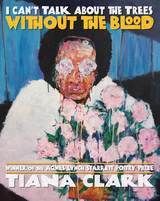
For prize-winning poet Tiana Clark, trees will never be just trees. They will also and always be a row of gallows from which Black bodies once swung. This is an image that she cannot escape, but one that she has learned to lean into as she delves into personal and public histories, explicating memories and muses around race, elegy, family, and faith by making and breaking forms as well as probing mythology, literary history, her own ancestry, and, yes, even Rihanna. I Can’t Talk About the Trees without the Blood, because Tiana cannot engage with the physical and psychic landscape of the South without seeing the braided trauma of the broken past—she will always see blood on the leaves.
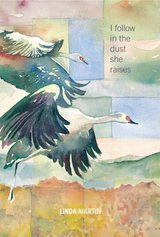
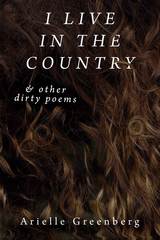
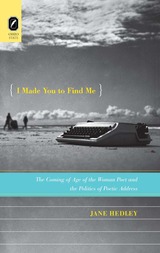
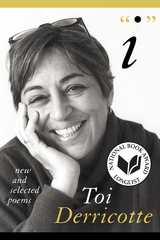
Finalist, 2019 National Book Award
Honorable Mention, 2020 BCALA Literary Awards
Toi Derricotte’s story is a hero’s journey—a poet earning her way home, to her own commanding powers. “I”: New and Selected Poems shows the reader both the closeness of the enemy and the poet’s inherent courage, inventiveness, and joy. It is a record of one woman’s response to the repressive and fracturing forces around the subjects of race, class, color, gender, and sexuality. Each poem is an act of victory as the author finds her way through repressive forces to speak with beauty and truth.
This collection features more than thirty new poems as well as selections from five previous collections.

The author begins his “nonlectures” with the warning “I haven’t the remotest intention of posing as a lecturer.” Then, at intervals, he proceeds to deliver the following:
1. i & my parents
2. i & their son
3. i & selfdiscovery
4. i & you & is
5. i & now & him
6. i & am & santa claus
These talks contain selections from the poetry of Wordsworth, Donne, Shakespeare, Dante, and others, including e. e. cummings. Together, it forms a good introduction to the work of e. e. cummings.
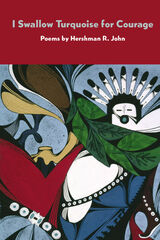
With their recurring images of sheep, coyotes, and crows—and an ever-present Navajo grandmother—these poems carry echoes of an ancient time that seems to exist in parallel with our own. The people who live in them bear, as if woven strand by strand into their souls, the culture and traditions of the Glittering World. Although these poems are lush with imagery of sunbaked lands, they are never sentimental. Throughout this collection, the poet’s voice is confident, assured, and engaged with life in a messy world. It is a world in which animated spirits dwell comfortably with modern machinery, where the spiritual resides with the all-too-human. This is a welcoming universe. It invites us to enter, to linger, to savor, and to learn.

Built on early transcriptions of Native American “songs” and arranged by subject, these poems are informed by additional context that enables readers to appreciate more fully their imagery, their cultural basis, and the moment that produced them. They let us look at our continent through the eyes of a wide range of people: poets, hunters, farmers, holy men and women, and children. This poetry achieved its vividness, clarity, and intense emotional powers partly because the singers made their poems for active use as well as beauty, and also because they made them for singing or chanting rather than isolated reading.
Most striking, classical North American Indian poetry brings us flashes of timeless vision and absolute perception: a gull’s wing red over the dawn; snow-capped peaks in the moonlight; a death song. Flowing beneath them is a powerful current: the urge to achieve a selfless attention to the universe and a determination to see and delight in the universe on its own terms.

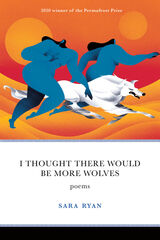
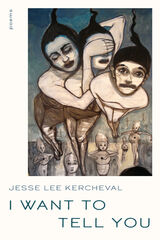
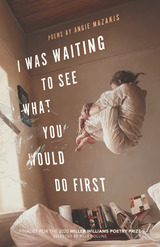
Like nesting dolls, the poems in I Was Waiting to See What You Would Do First contain scenes within scenes, inviting the reader over and over again to sharpen focus on minute details that, though small, reveal much about human perception and imagination.
Angie Mazakis handles these layers of revelation with great tenderness. Her poems wander in the way that a curious mind wanders, so that even though they often end very far from where they started, they are anchored in the familiar, referring to experiences we all share: a moment of distraction in a coffee shop imagining a conversation with someone across the room, or a narrative built around the expressions of the cartoon people on the airplane seatback safety guide.
I Was Waiting to See What You Would Do First is a testament to the notion that whether through a cosmic or microscopic lens, “You just see one moment; you just see now.”

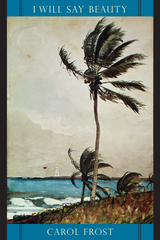
"I will say beauty," Carol Frost boldly says in one of her new lyrical poems, beauty being for her and all of us elusive-in and out of nature. The phrase is meant as a cri de coeur, and the poems are arranged to offer a fresh way to look at--and exist within--nature. For Frost, beauty is a far cry from the decorous and social.
Frost sets many of these poems in Florida's Cedar Keys, amidst the nesting areas of birds, cottonmouth snakes, wetlands, and tidal rhythms. The reader undertakes a journey through a tropical summer, where strange scents and sounds are signs of the transient beauties the imagination may possess for a moment. Drawing brilliantly from nature and from art, from the rhythms of life and the furies of emotion, Frost rejects standard responses and dares to ask: how do we perceive the world? When is beauty not enough? Can we imagine Paradise? And, when nature ordains that death must come, and we weaken, how do we die?

The poets testify to the demotic nature of poetry as a charged language that speaks uniquely in original voices, yet appeals universally. As individuals with their own transpersonal stories, the poets have emerged onto the national stage from very local places with news that witnesses memorably in social, personal, and political ways. They talk about their poems and development as poets self-effacingly, honestly, and insightfully, describing just how and when they were "hurt into poetry," as well as why they have pursued writing poetry as a career in which, as Robert Frost noted in his poem "Two Tramps in Mud Time," their object has become "to unite [their] avocation and [their] vocation / As [their] two eyes make one in sight."
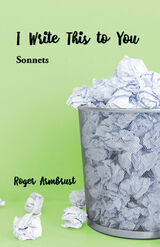
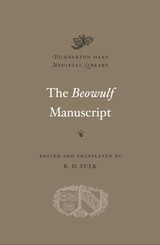
Beowulf is one of the finest works of vernacular literature from the European Middle Ages and as such is a fitting title to head the Old English family of texts published in the Dumbarton Oaks Medieval Library.
But this volume offers something unique. For the first time in the history of Beowulf scholarship, the poem appears alongside the other four texts from its sole surviving manuscript: the prose Passion of Saint Christopher, The Wonders of the East, The Letter of Alexander the Great to Aristotle, and (following Beowulf) the poem Judith. First-time readers as well as established scholars can now gain new insights into Beowulf—and the four other texts—by approaching each in its original context.
Could a fascination with the monstrous have motivated the compiler of this manuscript, working over a thousand years ago, to pull together this diverse grouping into a single volume? The prose translation by R. D. Fulk, based on the most recent editorial understanding, allows readers to rediscover Beowulf’s brilliant mastery along with otherworldly delights in the four companion texts in The Beowulf Manuscript.

A new translation of two medieval Spanish versions of the tale of Apollonius, a story central to the premodern literary imagination and a source for Shakespeare’s Pericles.
Incest, riddling, piracy, prostitution, shipwreck, Lazarus-like resuscitation, and seductive musical performances—the story of King Apollonius and his wanderings, with its riveting plot twists, has been told and retold in many languages since its late antique composition. No conventional romance hero, Apollonius proves his mettle not on the battlefield but through study, sport, music, and courtliness. The equally studious and courtly heroines of the romance—Luciana and Tarsiana, Apollonius’s wife and daughter—embark on their own adventures before the family reunites. Throughout, the king’s trials are cast as a Christian allegory of fortune.
Two Castillian versions are included in The Iberian Apollonius of Tyre. The thirteenth-century poem known as The Book of Apollonius, a creative adaptation by an unknown cleric, focuses on Apollonius as a pilgrim figure and Christianizes the narrative. The fifteenth-century prose Life and History of King Apollonius, a highly literal translation of the Latin Gesta Romanorum text by an anonymous Aragonese translator, is representative of vernacular humanism and linked with the genre of the short chivalric tale.
This volume presents new editions and English translations of these two complete, standalone medieval Spanish versions of the ancient legend.
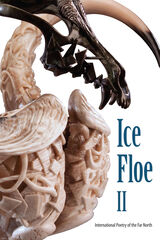
The long-awaited second volume of the newly revived Ice Floe series, Ice Floe II features new and exciting works of poetry from a vibrant and diverse group of writers from Alaska, Canada, Russia, Sweden, Iceland, and beyond. All work is presented here in both its original language and in English translation. With contributors that include former Alaska poet laureate Tom Sexton, Riina Katajavuori, Yuri Vaella, Gunnar Randversson, and dozens of other established and emerging poets, this wonderful collection of voices from the northern latitudes will be a great read for all lovers of poetry and international literature.
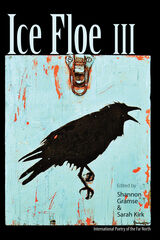
The third volume of the revived Ice Floe series, Ice Floe III features new and exciting works of poetry by authors from Alaska, Canada, Iceland, the Faroe Islands, Norway, Sweden, Finland, and Russia. All work is presented in both its original language and in English translation. The contributors—Nancy Lord, Tom Sexton, Eira Stenberg, and Riina Katajavuori, among others—include established and emerging poets. This dynamic and vibrant collection of voices from the northern latitudes will be a great read for all poetry enthusiasts and devoted readers of international literature.
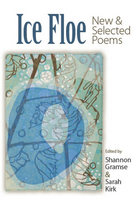
Ice Floe, the celebrated and award-winning journal of circumpolar poetry, is here reborn as an annual book series. This first volume features the best of the journal's first seven years, along with evocative new poetry from Alaska, Canada, Iceland, Norway, Sweden, Finland, and Russia. All work is presented in both its original language and in English translation. With contributors including former Alaska poet laureate John Haines, Gunnar Harding, Robert Bly, Lennart Sjögren, and dozens of other established and emerging poets, this wonderful collection of voices from the northern latitudes is a great read for all lovers of poetry and international literature.

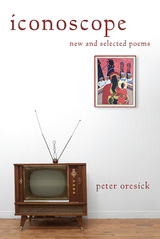

The ideogram changed the course of modern American poetry, and Ideogram is the first history of this important poetic tradition.
In modern poetry the ideogram is an idea presented to the reader by means of the juxtaposition of concrete particulars, usually without connective words or phrases. The poem is therefore presented in precise images, usually very tersely, and free from conventional form and meter. The idea of presenting a concept in this manner derives in part from Ernest Fenollosa's essay "The Chinese Character as a Medium for Poetry," the Chinese written character itself being a juxtaposition of pictographs to form a new meaning.
Ezra Pound's search for an alternative to traditional forms of verse composition resulted in his use of the ideogrammic method which, Laszlo K. Géfin asserts, became the major mode of presentation in twentieth-century American poetry. Two generations of avant-garde, experimental poets since Pound have turned to it for inspiration, evolving their own methods from its principles.
Géfin begins by tracing the development of Pound's poetics from the pre-Imagist stage through Imagism and Vorticism to the formulation of the ideogrammic method. He then examines the Objectivist poetics of Louis Zukofsky, Charles Reznikoff, and George Oppen; the contributions to the ideogrammic tradition of William Carlos Williams; and the Projectivist theories of Charles Olson, Robert Duncan, and Robert Creeley. He concludes with an exploration of Allen Ginsberg's theory of the ellipse and Gary Snyder's "riprap" method. Throughout, Géfin maintains that the ideogrammic mode is the literary representation of the twentieth-century post-logical—even post-humanist—world view.

For nearly a thousand years the brilliant analysis of aesthetic experience set forth in the Locana of Abhinavagupta, India's founding literary critic, has dominated traditional Indian theory on poetics and aesthetics. The Locana, presented here in English translation for the first time, is a commentary on the ninth-century Dhvanyaloka of Anandavardhana, which is itself the pivotal work in the history of Indian poetics.
The Dhvanyaloka revolutionized Sanskrit literary theory by proposing that the main goal of good poetry is the evocation of a mood or "flavor" (rasa) and that this process can be explained only by recognizing a semantic power beyond denotation and metaphor, namely, the power of suggestion. On the basis of this analysis the Locana develops a theory of the psychology of aesthetic response.
This edition is the first to make the two most influential works of traditional Sanskrit literary and aesthetic theory fully accessible to readers who want to know more about Sanskrit literature. The editorial annotations furnish the most complete exposition available of the history and content of these works. In addition, the verses presented as examples by both authors (offered here in verse translation) form an anthology of some of the finest Sanskrit and Prakrit poetry.
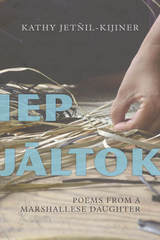
As the seas rise, the fight intensifies to save the Pacific Ocean’s Marshall Islands from being devoured by the waters around them. At the same time, activists are raising their poetic voices against decades of colonialism, environmental destruction, and social injustice.
Marshallese poet and activist Kathy Jetnil-Kijiner’s writing highlights the traumas of colonialism, racism, forced migration, the legacy of American nuclear testing, and the impending threats of climate change. Bearing witness at the front lines of various activist movements inspires her work and has propelled her poetry onto international stages, where she has performed in front of audiences ranging from elementary school students to more than a hundred world leaders at the United Nations Climate Summit.
The poet connects us to Marshallese daily life and tradition, likening her poetry to a basket and its essential materials. Her cultural roots and her family provides the thick fiber, the structure of the basket. Her diasporic upbringing is the material which wraps around the fiber, an essential layer to the structure of her experiences. And her passion for justice and change, the passion which brings her to the front lines of activist movements—is the stitching that binds these two experiences together.
Iep Jāltok will make history as the first published book of poetry written by a Marshallese author, and it ushers in an important new voice for justice.

Dayna Patterson has produced a book obsessed with motherhood and daughterhood, ancestry, and transition—of home, family, faith, and the narratives woven to uphold the Self. In her debut collection of poetry and lyric essay, Patterson grapples with a patriarchal and polygamous heritage. After learning about her mother’s bisexuality, Patterson befriends doubt while simultaneously feeling the urge to unearth a feminist theology, one that envisions God the Mother taking pride in her place at the banquet table.
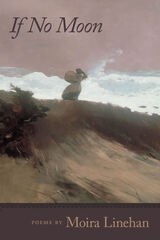
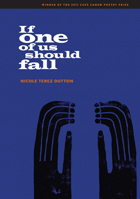
“Nicole Terez Dutton’s fierce and formidable debut throbs with restless beauty and a lyrical undercurrent that is both empowered and unpredictable. Every poem is unsettling in that delicious way that changes and challenges the reader. There is nothing here that does not hurtle forward.”<br>
—Patricia Smith

Jennifer Franklin reimagines an Antigone for our times in her third collection, If Some God Shakes Your House, where filial devotion and ossified roles of gendered labor become the engine of her defiance. Franklin’s Antigone is ferocious, feeling, and unafraid of the consequences of speaking the truth to power about the political atrocities she has witnessed and personal traumas she has withstood. With a sensitivity that equally elevates the quotidian and the classical, and an attention that moves from the ancient ruins of Pompeii to the right of bodily autonomy and agency stripped away by our own Supreme Court, Franklin reveals the high stakes of our moment where “the one who does the judging judges things all wrong.” Franklin’s Antigone has embraced the sacrifice of self for something greater—a dual devotion to her disabled daughter and to her art. “For twenty years, I have been disappearing,” she writes in the book’s final poem, yet she continues to sing.
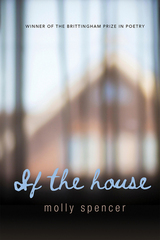

Elena Karina Byrne’s fourth collection of poems offers what she describes as an homage to her art-immersed upbringing with poems that challenge perception as they create a dialogue between the speaker and sixty-six artists. Lyrical narratives unfold with psychological urgency and candor as they re-encounter each artist’s unique oeuvre. The poems are as political as they are personal, mapping out the author’s emotional, spatial, and gender orientations within the confines of our visual culture.
Longing and loss prevail in If This Makes You Nervous, always leading the reader on winding paths that return to the bodily while balancing beauty and terror and what is seen and what remains invisible. If This Makes You Nervous is a devotional look at shifting identity that begins in a preteen’s memory, moves through history’s collective body, and ends with what is “connected and accounted for” in the imagination’s relativistic measure of time.
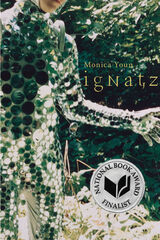
Ignatz takes the form of a cycle of love poems—in radical variations—based on Ignatz Mouse, the rodent anti-hero and love-object of George Herriman’s classic comic strip Krazy Kat. For decades, Krazy Kat rang the changes on a quirky theme of unrequited love: cat loves mouse; mouse hates cat; mouse hits cat with brick; cat mistakes brick for love; and so on, day after day. The backgrounds of the strip were in constant inexplicable flux: a desiccated specimen of Arizona flora morphs in the next panel into a crescent moon, then into a snowcapped butte, while the characters chatted obliviously on, caught up in their own obsessive round.
Moving through pacy, overflowing sentences, enigmatic aphoristic observations, and pointed imagistic vignettes, Youn’s second collection vividly captures the way the world reorients around an object of desire: the certainty that your lover “will appear in the west, backlit by orange isinglass,” the ability to intuit a lover’s presence from the way “unseen flutes / keep whistling the curving phrases of your body.” Youn skillfully draws on the repeating narrative motifs and haunting landscapes of Krazy Kat as she tests and surpasses the limits of lyric to explore the cyclical elements of romanticized love. Youn speaks to and with her poetic forbears, whether St. John Perse, whose phrase “robed in the loveliest robe of the year” (T.S. Eliot’s translation) recurs in several love songs to Ignatz, or Geoffrey Hill, whose Mercian Hymns these poems recall in their serial structure and their commingling of the contemporary and classical. Ignatz is a poignant foray into the inventive possibilities of obsession and passion.


The Iliad reveals a traditional oral poetic style, but many researchers believe that the poem cannot be treated as solely a product of oral tradition. In The Iliad and the Oral Epic Tradition, Karol Zieliński argues that neither Homer’s unique artistry nor references to events known from other songs necessarily indicate the use of writing in its composition. The development of traditional oral cycles suggests that the Iliad is only one of many possible retellings of the story of the Trojan War, in this case with Achilles playing the role of protagonist.
The singer has at his disposal a wide range of techniques to attract and arouse the attention of his listeners. He builds on their knowledge of traditional tales—such as the death of Achilles—in all their various forms, as they exist in the collective memory of the society. The singer may intentionally remodel central characters like Achilles, Odysseus, or Paris, without changing their traditional roles or their destinies. As Zieliński demonstrates, the oral poet can alter the plot of a traditional episode as well as transform its ideological significance. Every cyclic song echoes the story of the entire war, even as it depicts only one episode, traditionally extracted from the beginning or the end of the macro-story.
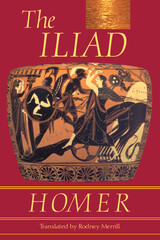
nuances of English."
---Stephen G. Daitz, Professor Emeritus of Classics, City University of New York
Rodney Merrill's translation of Homer's Iliad offers a form of English poetry particularly relevant to the epic, producing a strong musical setting that brings many elements of the narrative truly to life. Most notable are the many battle scenes, in which Homer's strong dactylic hexameters make credible the "war-lust" in the deeds of the combatants.
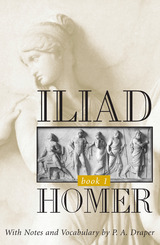
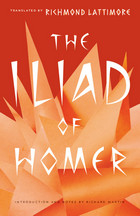
"Sing, goddess, the anger of Peleus’ son Achilleus / and its devastation." For sixty years, that's how Homer has begun the Iliad in English, in Richmond Lattimore's faithful translation—the gold standard for generations of students and general readers.
This long-awaited new edition of Lattimore's Iliad is designed to bring the book into the twenty-first century—while leaving the poem as firmly rooted in ancient Greece as ever. Lattimore's elegant, fluent verses—with their memorably phrased heroic epithets and remarkable fidelity to the Greek—remain unchanged, but classicist Richard Martin has added a wealth of supplementary materials designed to aid new generations of readers. A new introduction sets the poem in the wider context of Greek life, warfare, society, and poetry, while line-by-line notes at the back of the volume offer explanations of unfamiliar terms, information about the Greek gods and heroes, and literary appreciation. A glossary and maps round out the book.
The result is a volume that actively invites readers into Homer's poem, helping them to understand fully the worlds in which he and his heroes lived—and thus enabling them to marvel, as so many have for centuries, at Hektor and Ajax, Paris and Helen, and the devastating rage of Achilleus.

The epic tale of wrath and redemption.
Here is a new Loeb Classical Library edition of Homer’s stirring heroic account of the Trojan war and its passions. The eloquent and dramatic epic poem captures the terrible anger of Achilles, “the best of the Achaeans,” over a grave insult to his personal honor and relates its tragic result: a chain of consequences that proves devastating for the Greek forces besieging Troy, for noble Trojans, and for Achilles himself. The poet gives us compelling characterizations of his protagonists as well as a remarkable study of the heroic code in antiquity.
The works attributed to Homer include the two oldest and greatest European epic poems, the Odyssey and Iliad. These texts have long stood in the Loeb Classical Library with a faithful and literate prose translation by A. T. Murray. William F. Wyatt has brought the Loeb’s Iliad up to date, with a rendering that retains Murray’s admirable style but is worded for today’s readers. The two-volume edition includes an Introduction, helpful notes, and an index.

The epic tale of wrath and redemption.
Here is a new Loeb Classical Library edition of Homer’s stirring heroic account of the Trojan war and its passions. The eloquent and dramatic epic poem captures the terrible anger of Achilles, “the best of the Achaeans,” over a grave insult to his personal honor and relates its tragic result: a chain of consequences that proves devastating for the Greek forces besieging Troy, for noble Trojans, and for Achilles himself. The poet gives us compelling characterizations of his protagonists as well as a remarkable study of the heroic code in antiquity.
The works attributed to Homer include the two oldest and greatest European epic poems, the Odyssey and Iliad. These texts have long stood in the Loeb Classical Library with a faithful and literate prose translation by A. T. Murray. William F. Wyatt has brought the Loeb’s Iliad up to date, with a rendering that retains Murray’s admirable style but is worded for today’s readers. The two-volume edition includes an Introduction, helpful notes, and an index.
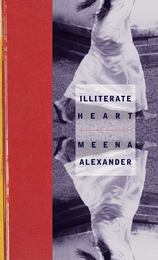
Recipient, 2008 Guggenheim Fellowship
Meena Alexander's poetry emerges as a consciousness moving between the worlds of memory and the present, enhanced by multiple languages. Her experience of exile is translated into the intimate exploration of her connections to both India and America. In one poem the thirteenth-century Persian poet Rumi visits with her while she speaks on the phone in her New York apartment, and in another she evokes fellow-poet Allen Ginsberg in the India she herself has left behind. Drawing on the fascinating images and languages of her dual life, Alexander deftly weaves together contradictory geographies, thoughts, and feelings.
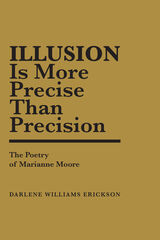
Erickson examines the work of Marianne Moore in order to provide some consistently successful strategies for understanding her poetry
This study demonstrates that Moore’s voice is arguably the strongest female voice in twentieth century American literature and her poetic voice could hold its own in the company of the best of the other modernists. Unlike many current scholars, Erickson examines closely the texts of Moore’s poems themselves, allowing the poet’s own voice to speak clearly. The study also explores Moore’s obsession with time, her preoccupation with the visual, her interest in the forms of Hebrew verse and her “susceptibility to happiness,” an outlook at some odds with the twentieth century’s fascination with the “romance of failure.”
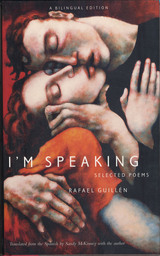
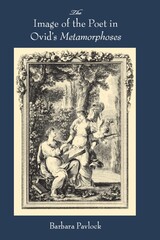
The Image of the Poet explores issues central to Ovid’s poetics—the status of the image, the generation of plots, repetition, opposition between refined and inflated epic style, the reliability of the narrative voice, and the interrelation of rhetoric and poetry. The work explores the constructed author and complements recent criticism focusing on the reader in the text.
2009 Outstanding Academic Title, Choice Magazine

"It is Mr. Harper's achievement to have projected his most difficult and complex insights and feelings through the epical manner, yet at the same time carried us along to identify with him." -- New York Times Book Review
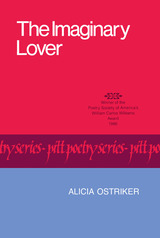
With The Imaginary Lover, Alicia Suskin Ostriker takes her place among the most striking and original poets whose work is informed by feminist consciousness. Her characterization of the best poetry by women, in the New York Times Book Review, aptly describes this book: “intimate rather than remote, passionate rather than distant, defying divisions between emotion and intellect, private and public, life and art, writer and reader.” To read her poems is to “discover not only more of what it means to be a woman but more of what it means to be human.”

In linked chapters that fluidly blend lyric essay, literary and scientific analysis, poetry, theory, and memoir, The Imaginary Present offers refreshing new insights on a wide range of thinkers over the past 100 years, including poets Rae Armantrout and M. NourbeSe Philip, novelists Alfred Jarry and Virginia Woolf, comic book writer Grant Morrison, and physicists Albert Einstein and Werner Heisenberg. The introduction explores why poetry and physics are capable of jointly investigating our most fundamental questions about the universe and discusses the history of the art-science connection in addition to the author’s own journey. In searching for the groundbreaking ways that artists and scientists can collaborate, The Imaginary Present offers readers both reasoned grounding and poetic framing for an interdisciplinary poetics and praxis based on science.
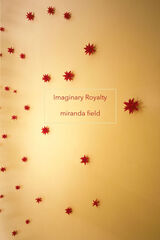

This book explores diverse but complementary interdisciplinary approaches to the poetics, intertexts, and influence of the work of C. P. Cavafy (Konstantinos Kavafis), one of the most important twentieth-century European poets. Written by leading international scholars in a number of disciplines (critical theory, gender studies, comparative literature, English studies, Greek studies, anthropology, classics), the essays of this volume situate Cavafy’s poetry within the broader contexts of modernism and aestheticism and investigate its complex and innovative responses to European literary traditions (from Greek antiquity to modernity) as well as its multifaceted impact on major figures of world literature—from North America to South Africa.
Contributors include Eve Sedgwick, Helen Vendler, Dimitrios Yatromanolakis, Richard Dellamora, Mark Doty, James Faubion, Diana Haas, John Chioles, Albert Henrichs, Kathleen Coleman, Michael Paschalis, Peter Jeffreys, and Panagiotis Roilos.

From the mortal maidens of 1817 to the omnipotent goddesses of 1819, Keats uses successive female characters as symbols portraying the salvation and destruction, the passion and fear that the imagination elicits. Karla Alwes traces the change in these female figures—multidimensional and mysteriously protean—and shows that they do more than comprise a symbol of the female as a romantic lover. They are the gauge of Keats’s search for identity. As Keats’s poetry changes with experience, from celebration to denial of the earth, the females change from meek to threatening to a final maternal and conciliatory figure.
Keats consistently maintained a strict dichotomy between the flesh-and-blood women he referred to in his letters and the created females of his poetry, in the same way that he rigorously sought to abandon the real for the ideal in his poetry. In her study of Keats’s poetry, Alwes dramatizes the poet’s struggle to come to terms with his two consummate ideals—women and poetry. She demonstrates how his female characters, serving as lovers, guides, and nemeses to the male heroes of the poems, embody not only the hope but also the disappointment that the poet discovers as he strives to reconcile feminine and masculine creativity. Alwes also shows how the myths of Apollo, which Keats integrated into his poetry as early as February 1815, point up his contradictory need for, yet fear of, the feminine. She argues that Keats’s attempt to overcome this fear, impossible to do by concentrating solely on Apollo as a metaphor for the imagination, resulted in his eventual use of maternal goddesses as poetic symbols.
The goddess Moneta in "The Fall of Hyperion" reclaims the power of the maternal earth to represent the final stage in the development of the female. In combining the wisdom of the Apollonian realm with the compassion of the feminine earth, Moneta is more powerful than Apollo and able to show the poet who does not recognize both realms that he is only a "dreamer," one who "venoms all his days, / Bearing more woe than all his sins deserve."
Because of Moneta’s admonishment, Keats becomes the poet capable of creating "To Autumn." In this final ode, Keats taps the transcendent power inherent in the temporal beauty of the earth. His imagination, once attempting to leave the earth, now goes beyond the Apollonian ideal into the realm of salvation—the human heart—that connects him to the earth. And because of his poetic reconciliation between heaven and earth, Keats is ultimately able to portray an earthly timelessness in which "summer has o’er-brimmed" the bees’ "clammy cells," making for "warm days [that] will never cease."

Yet, Imaginative Vision is also something more. Even as it centers on a literary translation of a singularly beautiful and influential book of poetry, it tells English-language readers the story of that book. Supporting materials illuminate the circumstances of its inception when Abdilatif, aged 22, was arrested and tried. They explore what the volume meant to its first readers and its affiliations with subsequent extraordinary works of prison literature by Alamin Mazrui and Ngũgĩ wa Thiong’o. They trace its links to literary art of the past, including the nineteenth-century poet Muyaka bin Haji, and to writing that followed. And they explain social and historical aspects of the Swahili coastal world that nurtured Abdilatif’s political engagement and stunning verbal art. Under the editorship of scholar, translator, and poet Annmarie Drury, contributors bring insights from their diverse backgrounds to present contextualizing material that illuminates the poems at the heart of this book.

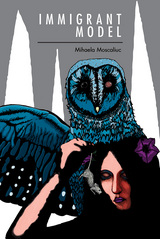

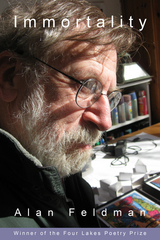
In a collection where the dead do speak, Feldman’s poems in his first segment, “Self-Portraits,” are more likely to be about others than about himself. The segment “Partners” reflects on marriage and divorce, the latter an “uncontested victor over marriage, / the way the flood is champion over the flood plain.” In the section “Offshore” Feldman writes about travel to Uruguay, his impractical love of sailing, and his wonder at Walter Cronkite’s obtuseness about Vietnam. In his final segment, “What Now?,” he asks about meaning itself. Babysitting his tiny granddaughter, he thinks of sailing—hours of boredom punctuated by moments of terror—and wonders if even this suggests something world-encompassing he’s “still hoping to find a name for. / If it isn’t joy.”
Winner of the Mass Book Award for Poetry, Massachusetts Center for the Book

The expansive reworking of language in Impastoral flies through the possible voices of outsides and insides—slug, probe, horse carriage, sewer, potted plant, lab rat, vampire, bot fly, giant cow. Language, in Brandan Griffin’s poetry, is neither human nor nonhuman, and it undoes that very idea of these distinctions, so beings—slugprobe, pottedhorsesewer, telepathybarcode, mammaltexts—morph and change in between boundaries.
Each of these poems is an organism, a collection of living connections, looped interiorities strung together in worlds tunneling through worlds. The poems’ composition becomes a decomposition of budding, breeding, and fluctuating. Reading this collection is an experience of becoming deformed and merged into the experiences of other beings; you are sea vent, microprocessor, cell gel, bug, a greenly translucent leaf typed half a sound at a time. Griffin invites us to imagine all possible beings and to hatch into a fresh world.
Impastoral won the Omnidawn Open Book contest, selected by Brian Teare.
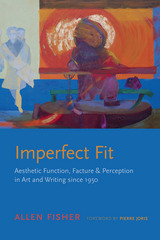
In Imperfect Fit, Fisher focuses on the role of fracturing, ruptures, and breakages in many traditional ties between art and poetry, as well as the resulting use of collage and assemblage by practitioners of those arts. Fisher addresses, among other subjects, destruction as a signifier in twentieth-century art; the poetic employment of bureaucratic vocabularies and “business speak”; and the roles of public performance and memory loss in the fashioning of human knowledge and art.
Commonplace notions of coherence, logic, and truth are reimagined and deconstructed in this study, and Fisher concludes by suggesting that contemporary culture offers a particularly robust opportunity—and even necessity—to engage in the production of art as a pragmatic act. Scholars of art, poetry, and aesthetics will be engaged and challenged by this insightful work.
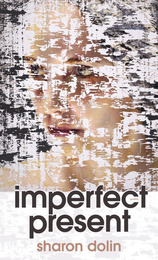
Imperfect Present is a book for our current moment. By confronting the urgencies of daily life, from questions of identity to sexual abuse to racial unrest to the ubiquity of plastic, these poems investigate ways to sustain ourselves in our fraught public and private lives. With her characteristic linguistic play, Sharon Dolin illuminates some of the most personal concerns that resonate throughout our culture and in ourselves, such as error, despair, uncertainty, and doubt. In sections that deploy the lens of art, the “Oblique Strategies” of Brian Eno and Peter Schmidt, and meditations on dreams and spirituality, Imperfect Present provides a panoply of approaches that grapple with the complexity of now.
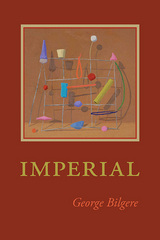
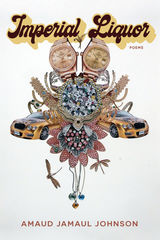
Imperial Liquor is a chronicle of melancholy, a reaction to the monotony of racism. These poems concern loneliness, fear, fatigue, rage, and love; they hold fatherhood held against the vulnerability of the black male body, aging, and urban decay. Part remembrance, part swan song for the Compton, California of the 1980s, Johnson examines the limitations of romance to heal broken relationships or rebuild a broken city. Slow Jams, red-lit rooms, cheap liquor, like seduction and betrayal—what’s more American? This book tracks echoes, rides the residue of music “after the love is gone.”

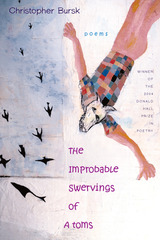
Winner of the 2004 Donald Hall Prize in Poetry
The Improbable Swervings of Atoms follows the comedic, often painful, physical and emotional travails of a young boy growing up in 1950s America. He watches the McCarthy hearings, conquers the Congo, assassinates the president, has his head stuffed into a toilet, drops his uniform on the fifty-yard line, and tries to make sense of Lucretius’s De Rerum Natura.
The poems engage history in a very intimate way, revealing how a boy, as he matures, attempts to understand the world around him, his own physical development, the people in his life, and what it means to live in a country and time where it is impossible to disengage oneself from world events—where, in fact, the quest for identity is an act that requires one to rewrite history in personal terms.
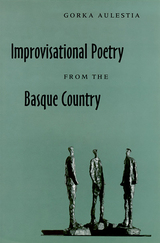
Foreword by William A. Douglass Translated by Lisa Corcostegui and Linda White.Improvisational Poetry from the Basque Country introduces the Basque bertsolari to the English-speaking world and provides an understanding of an interesting cultural phenomenon—the artist in Basque society who is capable of improvising verse on any subject spontaneously and setting it to music. The tradition is at least several centuries old and runs the gamut from amateurish efforts to periodic national championship competitions. These competitions draw thousands of listeners and pack theaters while many other thousands tune their radios to the broadcasts of the performances. Aulestia takes a scholarly and in-depth look at the art of the bertsolari. In a fascinating text, the author examines the history of a tradition that is truly unique and completely Basque. He introduces and analyzes the performing styles of great bertsolariak, including Xabier Amuriza and Jon Azpillaga. From the bertsolari’s roots in the old Basque Country to the social phenomenon it is today, Aulestia’s look at the improvisational oral literature of the Basques is an essential addition to their written history.
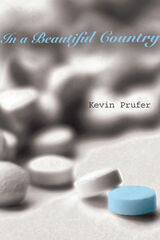

When the COVID-19 pandemic hit, Michael Krüger was suffering from severe shingles and just beginning treatment for leukemia. Because his immune system was so compromised that even a cough would have knocked him flat, he had to stay away from people. He retired to a wooden house near Lake Starnberg in Germany, and from there he dispatched his poetic messages. Krüger’s meditations from quarantine were printed for many months in the magazine of the Süddeutsche Zeitung and met with an enthusiastic response. In a Cabin, in the Woods collects fifty tableaux of nature, images of the immediate surroundings of a restricted life that also look beyond the horizon. At the same time, these poems look inward to explore transience, illness, and death. Humorous and melancholy, these are studies of the world made with the tiniest compass—meditations on nature and the nature of self that touch us all.
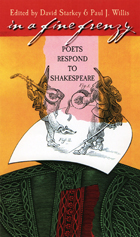
Showcasing poems by more than ninety contemporary American poets, In a Fine Frenzyreveals what Shakespeare’s poetic children have made of their inheritance. Particularly interested in Viola, Miranda, Prospero, Desdemona, Iago, Lear, Cordelia, Hamlet, Horatio, and Ophelia, the poets respond to the sonnets, the comedies, the tragedies, the romances, and, to a lesser degree, Shakespeare the man. In so doing they reveal the aspects of his work most currently captivating to modern writers.
Those who cherish Shakespeare’s mercurial wit will delight in the rapid shifts, from grief to hilarity, so characteristic of the bard himself. Comic poems about tragedies follow decidedly somber poems about comedies. Single poems contain multiple emotional twists and turns. Some pay homage; most interact directly with the original Shakespearean text. Collectively, they corroborate Ben Jonson's assertion that Shakespeare is “not of an age, but for all time.”
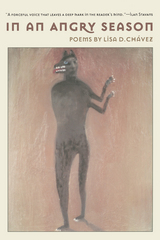
A white woman navigates her fear and uncertainty to learn the ways of the people she called savages, until she begins to dream “in Dakota, syllables sliding / on my tongue like tender pieces of meat.” An African man, on display as a cannibal at the World’s Columbian Exposition in 1893, sees into the future: “humiliations heaped up / as on overfilled plates . . . / . . . a country that casually / consumes its own.” A woman holds the gray-blue barrel of a gun in her mouth, “the taste familiar / as her own blood.”
With an unexcelled command of narrative verse, Lisa Chávez tells the stories of American lives across more than a century. Whether retelling nineteenth-century captivity narratives or depicting contemporary American women confronting addiction and despair, Chávez investigates issues of identity and self-definition in the face of an often harsh and unremitting history.
Her story-poems explore the ways in which people have been made captive—whether to racism or national policy, to bad marriages or alcoholism, to poverty or emotion—from the Inuit woman birthing a son among strangers to the wife now deranged by desire for another man: “He’s the smoky slow-burn of chipotle on the tongue. My golden idol. My gospel revival. He’s hashish sweet and languorous—my body’s one desire.”
In the end, Chávez shows us a New World of promise in which an alchemist’s assistant summons stories from stones by calling their names with “clicks of her tongue, / syllables of silver, turquoise, and jade,” and a Native woman discovers her true power in an Alaskan bar. Passionate and political, In an Angry Season is a work of startling depth and breadth—an American history in poetry—that asks us what it means to be civilized.
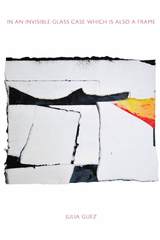
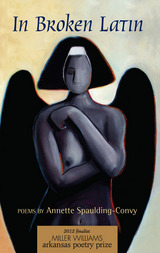
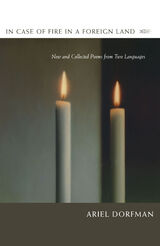


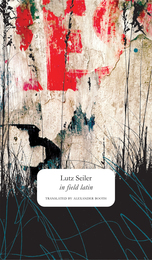

In Her Own Words: The Life and Poetry of Aelia Eudocia is the first full-length study to examine Eudocia’s writings as a unified whole and to situate them within their wider fifth-century literary, social, and religious contexts. Responsible for over 3,000 lines of extant poetry, Eudocia is one of the best-preserved ancient female poets. Because she wrote in a literary mode frequently suppressed by proto-orthodox (male) leaders, much of her poetry does not survive, and what does survive remains understudied and underappreciated. This book represents a detailed investigation into Eudocia’s works: her epigraphic poem in honor of the therapeutic bath at Hammat Gader, her Homeric cento—a poetic paraphrase of the Bible using lines from Homer—and her epic on the fictional magician-turned-Christian, Cyprian of Antioch.
Reading her poetry as a whole and in context, Eudocia emerges as an exceptional author representing three unique late-antique communities: poets interested in preserving and transforming classical literature; Christians whose religious views positioned them outside and against traditional power structures; and women who challenged social, religious, and literary boundaries.
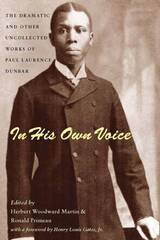
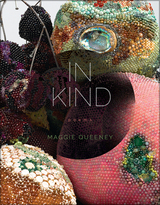
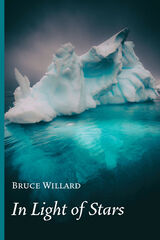
Willard’s love of music combines with his love and respect for the natural world. Often rooted in, or coming out of, domestic encounters, the poems of this collection rise up (much like the clouds over his oft-traversed Rockies), as the speaker throws his attention to earth and sky, better to understand his own dynamic and shifting inner weather.
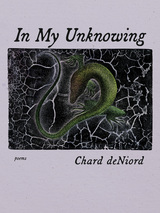
I WEPT WITH JOY ABOVE THE RIVER
I wept with joy above the river.
I wept with sorrow above the river.
My tears were clear, both sweet and bitter.
One leaf cried out to another,
“Empty me today of all my color.
Fill me tomorrow with a shot of sugar.”
This was the still ritual for my feet:
To stand on the earth that took of earth earth with ill and sing.

"In order to talk with the dead
you have to know how to wait:
they are fearful
like the first steps of a child.
But if we are patient
one day they will answer us
with a poplar leaf trapped in a broken mirror,
with a flame that suddenly revives in the fireplace,
with a dark return of birds
before the glance of a girl
who waits motionless on the threshold."
—from "In Order to Talk with the Dead"
Reared in the rainy forests of Chile's "La Frontera" region which had nurtured Pablo Neruda a generation earlier, Jorge Teillier has become one of Chile's leading contemporary poets, whose work is widely read in Latin America and Europe along with the poetry of his well-known contemporaries Nicanor Parra and Enrique Lihn. This English-Spanish bilingual anthology now introduces English-speaking readers to Teillier, with a representative selection of his best work from all phases of his career.
Carolyne Wright has translated poems from the volumes Muertes y maravillas (1971), Para un pueblo fantasma (1978), and Cartas para reinas de otras primaveras (1985). Avoiding the bravura effects of some of his contemporaries, Teillier writes from a life lived directly and simply, returning time and again in his poetry to the timeless and mythic South of his boyhood, the "Land of Nevermore."
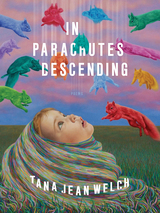

The first English translation of the narrative poem that is widely recognized as one of treasures of pre-modern Bengali culture.
In 1752, the Bengali poet Bharatchandra Ray completed a long narrative poem dedicated to the glory of Annada, the consort of Shiva and the divinity who, as her name proclaims, “bestows the bounty of rice.”
A poet well-versed in Sanskrit, Persian, and Hindi—all of which enrich his work—Bharatchandra took up the literary performance genre maṅgalkāvya and thoroughly transformed it, addressing the aesthetic tastes of the court rather than those of the traditional village audience. He added depth and sensitivity to well-known legends, along with allusions to his own experiences of poverty, and more than a dash of mischievous wit.
The second volume recounts the clandestine love affair of Princess Vidya and Prince Sundar, and how Bhavananda, ancestor of the poet’s patron, stopped a rebellion and became a king.
This translation, the first in English, features the original text in the Bangla script. Lively and entertaining, In Praise of Annada was regarded as a major achievement in its own time and is now counted one of the treasures of Bengali literature.

The first English translation of the narrative poem that is widely recognized as one of treasures of pre-modern Bengali culture.
In 1752, the Bengali poet Bharatchandra Ray completed a long narrative poem dedicated to the glory of Annada, Shiva’s consort and the divinity who, as her name proclaims, “bestows the bounty of rice.”
A poet well versed in Sanskrit, Persian, and Hindi—all of which enrich his work—Bharatchandra took up the literary performance genre maṅgalkāvya and thoroughly transformed it, addressing the aesthetic tastes of the court rather than of the traditional village audience. He added depth and sensitivity to well-known legends, along with allusions to his own experiences of poverty, and more than a dash of mischievous wit. The first volume narrates Annada’s origins, including the building of her city and temple under Shiva’s direction and the spread of her worship, and incorporates praise of the poet’s patron, the Nadia royal family.
This translation, the first into English, accompanies the original text in the Bangla script. Lively and entertaining, In Praise of Annada was regarded as a major achievement in its own time and remains a treasure of Bengali literature.
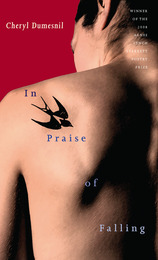
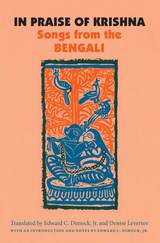
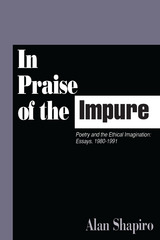

John Wood is well known for his brilliant writing on the history of photography, but for many years he has also centered on his work as a poet, publishing in some of the very best magazines and gaining the deep admiration of many writers and poets. This book is testimony of his devotion to his craft – a fully realized, mature, and carefully constructed collection.
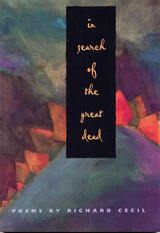
With grim humor and humorous grimness, In Search of the Great Dead engages the great themes of poetry: death and fame.
The title poem of this collection records Richard Cecil's quest for the tombs of the famous dead. At first the search leads him on a tour of famous European tombstones—the grave of Chateaubriand in St. Malo, the shared tomb of Gertrude Stein and Alice B. Toklas in Pere-Lachaise cemetery in Paris, Yeats's old Celtic cross in Sligo—but gradually it expands into areas where all the tombs have been erased by time or vandalism—the tombs of Seneca and Lucan, and all of the great dead poets whose names have been lost. These once famous, now unknown poets lead Cecil to consider those graveyards full of anonymous dead—the civil war soldiers buried under tiny stones with numbers instead of names inscribed on them. Are they more anonymous than the once famous, now forgotten "great" dead?
Though Cecil is wryly aware of his own obscurity, his poems are strangely optimistic and life-affirming. His reply to Emily Dickinson's question: "I'm Nobody—are you / Nobody, too?" is an enthusiastic yes! In Search of the Great Dead conveys the joy of being Nobody and the shy, almost buried hope that someday (after death), he might become Somebody.
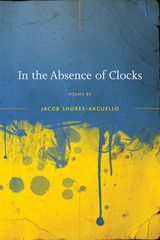
In the fascinating collection of poems, In the Absence of Clocks, poet Jacob Shores-Arguello takes readers on an illuminating voyage through Ukrainian life. Set during the turmoil of the 2004 Orange Revolution, when the country trembled in the wake of political corruption and public outrage, Shores-Arguello’s lyrics of a revolution provide a glimpse into a world at once foreign and familiar.
Throughout the collection are the iconic images and myriad juxtapositions of Ukrainian life. wolves howling in the snow and bakers pounding early-morning loaves of bread; farmlands and cities alike rocked by political transformation; gypsies and protesters; opulent images of Byzantium and the concrete ghosts of Chernobyl—all meet here at the crossroads of East and West, democracy and communism, reality and mythology. As the narrator travels across the Ukraine, he does much more than cross the distances between Horlivka and Odessa or Kiev and the Black Sea. As the tides of change swirl around him, they mirror his own search for a cultural identity and history.
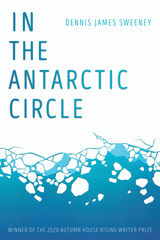
The space of these poems is something beyond the Antarctic of scientific exploration, the icy outpost that has served for so long as a masculine proving ground for polar explorers. This is the Antarctica of domestic disharmony, of love amid loneliness, where two people encounter themselves in the changeless breadth at the end of the world.
In the Antarctic Circle is the winner of the Autumn House Press 2020 Rising Writer Prize in Poetry.
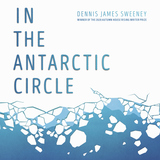
The space of these poems is something beyond the Antarctic of scientific exploration, the icy outpost that has served for so long as a masculine proving ground for polar explorers. This is the Antarctica of domestic disharmony, of love amid loneliness, where two people encounter themselves in the changeless breadth at the end of the world.
In the Antarctic Circle is the winner of the Autumn House Press 2020 Rising Writer Prize in Poetry.
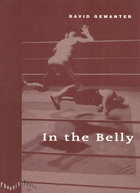
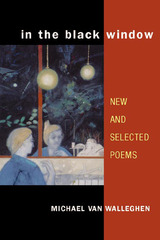
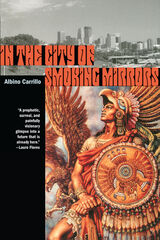
In the City of Smoking Mirrors relates H.'s adventures as he hovers between life and death, revisiting his homeland and ancestors. He issues letters and edicts—to the faithful, to his dead amigos—and chronicles his circumnavigation of the Land of the Dead and "what he saw there that made him write this book." In tantalizing verse that walks the edge of dream, Albino Carrillo takes readers on a lyrical exploration of a dark netherworld, a quest for hope in a universe overshadowed by impending doom—a place where "The demons you'll have to defeat on your inward journey / Are like so many little yellow hornets buzzing about / Window screens in summer, angry but looking / For anything sweet, any way out . . . ." Through the unforgettable persona of Huitzilopochtli, Carrillo shows us the transitory nature of our passions and wounds as he chisels a new headstone for our times.
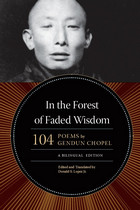
In a culture where poetry is considered the highest form of human language, Gendun Chopel is revered as Tibet’s greatest modern poet. Born in 1903 as British troops were preparing to invade his homeland, Gendun Chopel was identified at any early age as the incarnation of a famous lama and became a Buddhist monk, excelling in the debating courtyards of the great monasteries of Tibet. At the age of thirty-one, he gave up his monk’s vows and set off for India, where he would wander, often alone and impoverished, for over a decade. Returning to Tibet, he was arrested by the government of the young Dalai Lama on trumped-up charges of treason, emerging from prison three years later a broken man. He died in 1951 as troops of the People’s Liberation Army marched into Lhasa.
Throughout his life, from his childhood to his time in prison, Gendun Chopel wrote poetry that conveyed the events of his remarkable life. In the Forest of Faded Wisdom is the first comprehensive collection of his oeuvre in any language, assembling poems in both the original Tibetan and in English translation. A master of many forms of Tibetan verse, Gendun Chopel composed heartfelt hymns to the Buddha, pithy instructions for the practice of the dharma, stirring tributes to the Tibetan warrior-kings, cynical reflections on the ways of the world, and laments of a wanderer, forgotten in a foreign land. These poems exhibit the technical skill—wordplay, puns, the ability to evoke moods of pathos and irony—for which Gendun Chopel was known and reveal the poet to be a consummate craftsman, skilled in both Tibetan and Indian poetics. With a directness and force often at odds with the conventions of belles lettres, this is a poetry that is at once elegant and earthy. In the Forest of Faded Wisdom is a remarkable introduction to Tibet’s sophisticated poetic tradition and its most intriguing twentieth-century writer.
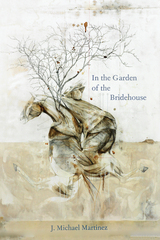
Turning the page into a visual field, as in the deconstructed musical score telling the tale of La Llorona, In the Garden of the Bridehouse questions the line between visual art and poetry. The work employs the vernacular, the stylized language of theory, and the blank canvas of the page in its exploration of the known and unknowable.
Throughout the work, Martinez paradoxically exercises both a lyrical minimalism and a baroque poetic, uniting Mesoamerican preconquest imaginary with the sensuality of the Biblical Song of Songs, cultivating a lyrical space wherein contrasting potentials are—as one—realized in their shared promise.

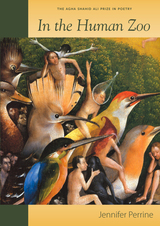
Winner of the Agha Shahid Ali Poetry Prize
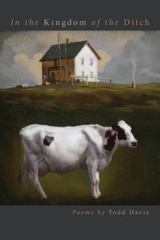
READERS
Browse our collection.
PUBLISHERS
See BiblioVault's publisher services.
STUDENT SERVICES
Files for college accessibility offices.
UChicago Accessibility Resources
home | accessibility | search | about | contact us
BiblioVault ® 2001 - 2024
The University of Chicago Press









